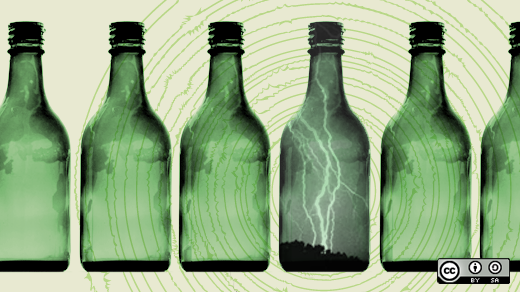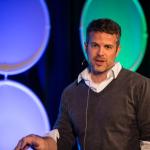All Things Open began with interesting and controversial keynotes; both centered on a call to action for the open source community. This part one of a two part series: first, a recap of Andy Hunt’s keynote, second and published next, a reacp of Whurley’s keynote.
All Things Open, a conference centered on open source software, was held in Raleigh, North Carolina on October 23 and October 24, 2013. Organized by IT-ology, All Things Open brought together a set of fascinating speakers and leaders from the open source community and put on a thought provoking conference. Todd Lewis led the effort of pulling the conference together.
Note: Todd has been a true friend to the IT and open source community. It pleases me to no end that this will embarrass the hell out of him. It's true, though.
Andy Hunt is the author of the groundbreaking book, Pragmatic Programmers, and founded the publishing company, The Pragmatic Bookshelf. At All Things Open, he began the morning and covered a lot of ground. I want to focus on two important points he made.
What is stopping you?
Andy’s first point began with an astute observation. Open source software is often discussed in terms of being a "stack" (LAMP, for instance). It is no longer a stack, however, but a tower. A tower that spans software and hardware. With the source or schematics being available, not only can we stand on the shoulders of the giants of our field but on the shoulders of everyone who contributes. It’s an embarrassment of riches.
Acknowledging this invariably lead to this question of: Whether a technology venture or participating in science, never has there been an easier time to learn and do, so...
What is stopping you?
Almost everything you could want to know is on the internet. Wikipedia. Google. Coursera. There are so many rich sources of information and nearly every tool you could need is readily available. MariaDB. (Oh yeah. I went there.) Clojure. Neo4j. Amazon Web Services. Nothing is stopping you from traveling in original directions and tackling hard problems.
This section of the speech ended with:
What are you going to invent next?
Where is the next big idea going to come from? You.
The second point Andy made began with an observation surrounding The Agile Manifesto. He said after it was published, the drafters expected there to be an explosion of Agile Methods. Instead, only a few emerged and persisted: XP, Scrum, and Allistars Cockburn’s 'Crystal METHods.' He stated that the lack of creativity present in the Agile Methods movement is "better on the coding side." Plenty of contributions are made to repositories daily and from those emerge true gems. Despite this, he said it has been 10 years since he has really been excited about a technology—that there have been no "fantastic inventions." Elixir is the first technology that has interested and excited him in a long time. Then, Andy asked:
Where is the next BIG IDEA going to come from?
His answer: You.
He finished his speech by outlining a method for cultivating big ideas.
Capture
Everyone gets flashes of inspiration but very, very few capture them. These flashes are inconvenient because they don’t happen in front of a computer. He implored the audience to start carrying a notebook and pen everywhere. When an inspiration hits you, write it down immediately. If you are driving, use a speech to text app. Whatever you need to do, capture your ideas,
Human memory is crap. It will destroy the idea.
Nurture
Once you capture the idea, you must nurture it. Andy’s main method for nurturing an idea is via a mind map. As you work the mind map, you will see associations and relationships that you didn’t realize before. They will be there for your to harvest and then contribute back.
Originally posted on 221B Labs. Reposted under Creative Commons.




3 Comments